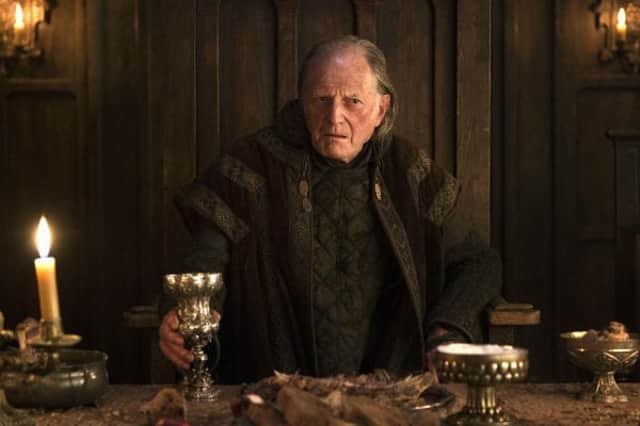Why Game of Thrones' Red Wedding shocked us to the core


This article contains affiliate links. We may earn a small commission on items purchased through this article, but that does not affect our editorial judgement.
*Spoilers for Game Of Thrones season 1-3*
Five years ago, on a quiet night in early summer, households the world over recoiled in horror as hit fantasy show Game of Thrones played perhaps its most infamous trump card yet. The Red Wedding.
In episode nine of the third season, fan favourite Robb Stark travels to the castle of fickle allies House Frey for an unassuming wedding; his uncle Edmure being betrothed to one of the vulgar Lord Frey's daughters.
Advertisement
Hide AdAdvertisement
Hide Ad

But after the ceremony, during the feast, things take a violent and traumatic turn.
Robb, his mother, and all of their attendant supporters are betrayed by the Freys and the slippery Roose Bolton - and the entire occasion descends into a visceral bloodbath of slaughter.
By the time the dust settles, Robb, Catelyn, and hundreds of Stark soldiers lie dead. The former coldly dispatched with blades to the heart and throat.
Even for a show that had acquired a reputation for violence and shock-factor, this was a moment that left viewers around the world in total shock.
Advertisement
Hide AdAdvertisement
Hide Ad

A 'fantastic', terrible twist
From Roose Bolton's sly nod down to his chainmail-clad arm, to Catelyn Stark's chilling, final wail of despair (Michelle Fairley's performance is heart-wrenching), the sense of escalation is extraordinary.
"I remember, as the scene unfolded, thinking variations of 'Oh s***!'," says Chris Slinn, via our Screen Babble discussion group.
"I don't think it was a game changer, because we've seen TV shocks in the past. I don't even think it changed my opinion of the show that much, given Ned's demise so early on.
"But it was a fantastic story twist though - as someone who had not read the books."
Advertisement
Hide AdAdvertisement
Hide AdLord of the double-crossing: Walder Frey prepares a toast ahead of the terror to come (Photo: HBO)
Those familiar with the source novels by author George R R Martin knew what was coming, of course. But even they were taken aback by the TV version.
The episode is titled 'The Rains Of Castamere' - the name of the Lannister song of doom that plays prior to the start of the massacre.
Martin has often used the Song Of Ice And Fire book series to subvert heroic fantasy tropes. And this may perhaps be his crowning example.
Advertisement
Hide AdAdvertisement
Hide AdYet certain changes in the adaptation actually served to make the TV version even more harrowing.
We, and poor Arya (who was so close to reuniting with her family), see Robb's wolf Greywind murdered in his pen by laughing Freys, who pepper the defenceless animal with crossbow bolts.
In the book, Robb's wife Jeyne is not with child, and is not present for the massacre. In the show, however, his wife Talisa is all too present and all too pregnant - and we flinch as a Frey man brutally stabs her again and again in the belly.
Robb and Talisa had become foremost in viewer affections and hopes prior to the episode (Photo: HBO)
Advertisement
Hide AdAdvertisement
Hide AdThe TV show also spent a much greater amount of time getting the audience to invest in and care for Robb. In the books, he is not even a point of view character. In the show, he all but becomes the 'hero' of the saga in seasons two and three.
But much like his father Ned, he learns all too late that being the hero is no protection in this ruthless universe.
"Having already read the books, I knew what I was getting into," comments Khalil A. Cassimally. "But still my jaw dropped.